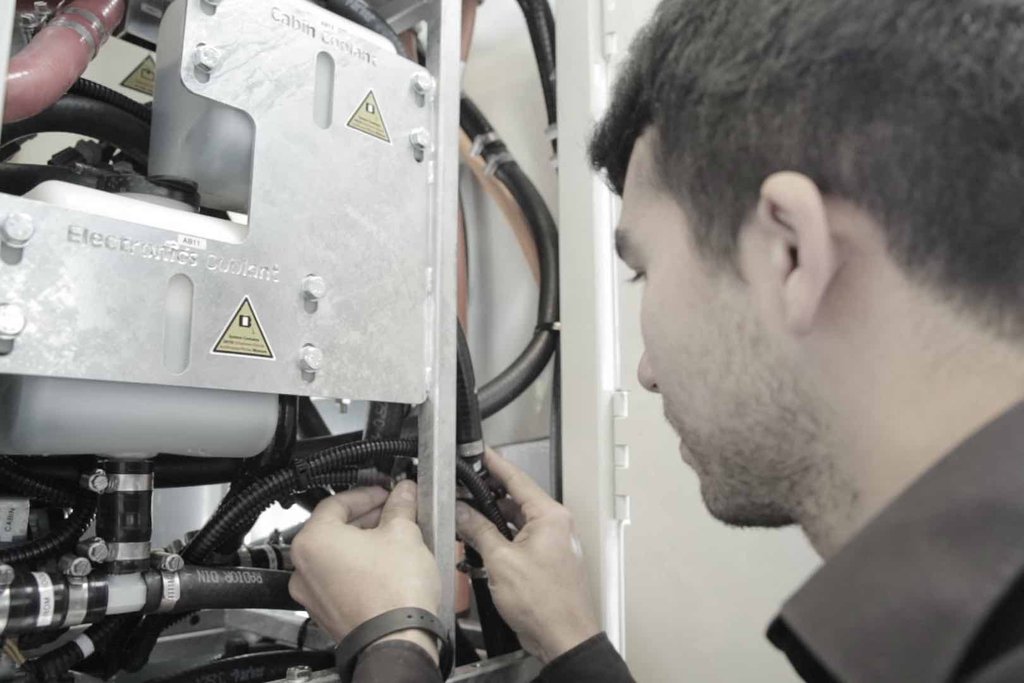Becoming an electrical mechanic is a rewarding career choice that requires a combination of technical expertise, practical skills, and a passion for problem-solving. In this comprehensive guide, we will delve into the essential steps and knowledge required to embark on this journey. From acquiring the necessary education and certifications to gaining hands-on experience, this article will equip you with the tools to become a successful electrical mechanic.
- Understanding the Role of an Electrical Mechanic:
Before diving into the specifics, it is crucial to grasp the responsibilities and scope of work of an electrical mechanic. They are skilled professionals who install, repair, and maintain electrical systems, equipment, and machinery. From troubleshooting electrical faults to interpreting blueprints, their expertise is vital in various industries such as construction, manufacturing, and telecommunications. - Education and Training:
To kickstart your career as an electrical mechanic, a solid educational foundation is essential. Consider pursuing a degree or diploma in electrical engineering or a related field from a reputable institution. This will provide you with a comprehensive understanding of electrical principles, circuits, and systems. Additionally, enrolling in vocational training programs or apprenticeships will allow you to gain hands-on experience under the guidance of experienced professionals. - Obtaining Certifications:
To enhance your credibility and marketability as an electrical mechanic, obtaining relevant certifications is crucial. The most recognized certification in this field is the National Electrical Code (NEC) certification, which validates your knowledge of electrical codes and regulations. Additionally, certifications such as Certified Electrical Technician (CET) and Certified Electrical Inspector (CEI) can further demonstrate your expertise and open doors to advanced career opportunities. - Developing Technical Skills:
As an electrical mechanic, honing your technical skills is paramount. Familiarize yourself with electrical tools, equipment, and safety protocols. Master the art of reading and interpreting electrical blueprints, schematics, and diagrams. Stay updated with the latest advancements in electrical technology, such as renewable energy systems and smart grids. Additionally, proficiency in troubleshooting electrical faults and conducting preventive maintenance will set you apart as a competent professional. - Gaining Hands-on Experience:
While theoretical knowledge is essential, gaining practical experience is equally vital. Seek opportunities to work alongside experienced electrical mechanics or participate in internships and apprenticeships. This hands-on experience will expose you to real-world scenarios, allowing you to apply your knowledge and develop problem-solving skills. Additionally, consider joining professional organizations or attending workshops and conferences to network with industry experts and stay abreast of emerging trends. - Emphasizing Safety:
Safety should always be a top priority for an electrical mechanic. Familiarize yourself with electrical safety guidelines, including proper grounding techniques, lockout/tagout procedures, and personal protective equipment (PPE) requirements. Adhering to safety protocols not only protects you from potential hazards but also ensures the well-being of those around you.
Conclusion:
Becoming an electrical mechanic requires dedication, continuous learning, and a passion for the field. By following the steps outlined in this guide, you can embark on a successful career in this dynamic industry. Remember, staying updated with industry advancements, continuously improving your technical skills, and prioritizing safety will contribute to your long-term success as an electrical mechanic.

